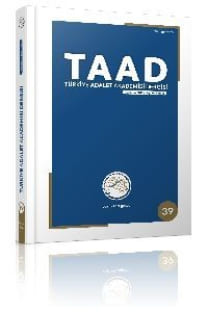ALMANYA'DA KAMU GÖREVLİLERİNİN HİZMET ÖNCESİ EĞİTİMİ VE ATANMALARI
Almanya'da ekonomi, siyasi bilimler veya bunlarla ilintili fakültelerden mezun olanların kamu sektöründe istihdam olanakları çok sınırlıdır. Höherer Dienst (Administrative class) sınıfına girebilmek için tercihen hukuk fakültesi lisans programından mezun olmak ve değişik kamu ve özel sektör kuruluşlarında asgari iki yıllık hazırlık programını tamamlamak gereklidir. Bu esnada adayın değişik kurslara katılımı sağlanarak idari konular hakkında tecrübe edinmesi sağlanır. Yine Gehobener Dienst (executive class) sınıfına girebilmek için belli lisans programlarından mezun olmak gereklidir. Federal devlet, Lander(federe devlet,eyalet)) ya da mahalli idareler kamu görevlisinin eğitim ve hazırlanmasından sorumludur. Bazı Avrupa ülkelerinde kamu görevlilerinin yetişmesini sağlayan okullar bulunmakla birlikte Almanya'da bu amaca özgülenmiş herhangi bir okul ya da üniversite bulunmamaktadır. Ancak bazı üniversitelerde kamu görevlilerine özgü kurslar açılabilmektedir. Sınıflar arasında geçişler mümkün olmakla birlikte bu geçişler çok zor şartlara bağlanmıştır. Örneğin Gehobener Dienst (executive class) sınıfından Höherer Dienst (Administrative class) sınıfına geçiş yapabilmek için tercihan bir hukuk lisansına sahip olmanın yanında çok ağır bir eğitim ve zorlu sınavlardan geçmek gereklidir. Dolayısıyla Alman kamu personel sistemi liyakat ilkesinin layıkı veçhile uygulandığı ve siyasi kayırmacılığın asgariye indirildiği bir sistem olarak tanımlanabilir.
Training and Recruitment of Civil Servants in Germany
Graduates from programmes with an economic, managerial or political science-related background have only limited job opportunities and career perspectives in the German civil service. For entering the "administrative class" a university degree is required which usually has to be completed by a two years preparatory traineeship with practical stages in different public and private institutions, supplemented with some courses on administrative topics. Apart from that there is no specific pre-entry education or training for the administrative class. To enter the "executive class" a degree at a university of applied sciences has to be obtained. Finally, vocational training is required for a position in the "clerical class".Each ministry at the federal level, each state, and each local authority has the right to recruit its staff members itself. There is no Civil Service Commission or other centralized authority involved in HRM affairs. As a result, personnel management and administration is rather diversified and decentralized in Germany. In sharp contrast to the centralized French system of civil service training offered among others by the École Nationale d'Administation (ENA), each jurisdiction is responsible for education and training of civil servants in Germany. There are no central elite schools for the education and training of the civil service.
___
- Auer, Astrid/ Christoph Demmke/ Robert Poltet, Civil Services in the Europe of Fifteen: Current Situation and Prospects, European Institute of Public Ad- ministration, Maastricht, 2006.
- Başar, H., "Yöneticilerimiz Nasıl Davranıyor", Hacettepe Üniversitesi Eğitim Fakültesi Dergisi, S. 6,1991.
- Canman,D., Çağdaş Personel Yönetimi, TODAİE Yayınları, Ankara, 1995.
- Derlien, H. U.,: "Historical Legacy and Recent Developments in the German Hi- gher Civil Service." In: International Review of Administrative Sciences, 1991.
- Goetz, K. H., "The Development and Current Features of the German Civil Service System", In: Bekke, Hans / van der Meer, Fritz (eds.): Civil Service Systems in Western Europe,2000.
- Hammerschmid, G / Proeller, I / Reichard, C / Röber, M, Verwaltungsführung heute - Ergebnisse einer Führungskräftebefragung in der deutschen Minis- terialverwaltung, Berlin , 2010,
- Hajnal, G., "Diversity and Convergence. A Quantitative Analysis of European Public Administration Programs", in: Journal of Public Affairs Education, s.256. Kalkandelen,H., "Yöneticilerin Yetiştirilmesi-Geliştirilmesi, Amme İdaresi Der- gisi, C.18, S.2, 1985.
- Kaya,Y.K., Eğitim Yönetimi-Kuram ve Türkiye'de ki Uygulama, Bilim Yayınevi, Ankara, 1999.
- Kreuter, F., Abschlußbericht des Forschungsprojekts Absolventenbefra- gung des Fachbereichs Politik- und Verwaltungswissenschaft der Univer- sität Konstanz. Endbericht,Konstanz,http://kops.ub.unikonstanz.de/volltex- te/2000/521/pdf/absol1
- Kuhlmann, S. / Röber, M. , "Civil Service in Germany: Between Cutback Mana- gement and Modernization",In: Hoffmann-Martinot, V. / Wollmann, H. (eds).: Modernization of State and Administration in Europe: A France-Germany Comparison , 2006.
- Reichard, C/ Röber, M, "Verwaltungsentwicklung und Ausbildungsreformen- aktuelle Tendenzen in einer unendlichen Geschichte", In: der moderne staat, Vol.2, No 1.
- Reichard, C., "The study of public management in Germany. Poorly institutio- nalized and fragmented", in: Kickert, Walter (ed.): The Study of Public Mana- gement in Europe and the US, London, New York.
- Reichard,C./Manfred R., "Inertia of education and recruitment in the German civil service",Paper presented at the EGPA-Conference 2010 for PSG 9 "Public Administration and Teaching",Toulouse, 8-10 September 2010
- Reichard,C., " The study of public management in Germany. Poorly institutio- nalized and fragmented", in: Kickert, Walter (ed.): The Study of Public Mana- gement in Europe and the US, London, New York, 2008.
- Ridley, F. F., "Career Service: A Comparative Perspective on Civil Service Pro- motion", Public Administration, Vol. 61, Summer.
- Röber, Manfred, " New Public Managers in Europe: National Study "German- y",in Farnham, David, S. Horton, J. Barlow und A. Hondeghem: New Public Managers in Europe: Public Servants in Transition, London, 1996.
- Röber, M. / Löffler, E., "Germany: the Limitations of Flexibility Reforms", In: Farnham, D. / Horton, S. (eds.): Human Resources Flexibilities in the Public Services. International Perspectives. Houndmills, Basingstoke, 2000.
- Wolff, H. A., "The Civil Service in Germany", Annual Report, Country, Ius Pub- licum, May 2011.
- Tanyeli, H., Personel Eğitimi: İlkeler-Teknikler-Metotlar, Şenyuva Matbaası, Ankara, 1970.
- Tortop,N.,Personel Yönetimi, Yargı Yayınları, Ankara, 1994.
- Tutum,C., Personel Yönetimi, 2.bs., Ankara 1979.
- ISSN: 1309-6826
- Başlangıç: 2010
- Yayıncı: Türkiye Adalet Akademisi
Sayıdaki Diğer Makaleler
İNSAN HAKLARI PERSPEKTİFİNDEN AVRUPA ASKERİ CEZA YARGISI SİSTEMLERİNİN GELİŞİMİ VE GÜNCEL EĞİLİMLER
TÜRK BORÇLAR HUKUKUNDA İKALE SÖZLEŞMESİ
ALMANYA'DA KAMU GÖREVLİLERİNİN HİZMET ÖNCESİ EĞİTİMİ VE ATANMALARI
YARGITAY'IN BİR KARARI IŞIĞINDA İLAMSIZ İCRA TAKİBİNDE YETKİ İTİRAZI
ULUSLARARASI HUKUKTA HAKKANİYETİN NORMATİF NİTELİĞİ
KABİLE SİSTEMİ EKSENİNDE MEDİNE VESİKASI VE YENİ İSLAM TOPLUMUNUN SOSYO-SİYASAL NİTELİĞİ
ANAYASA MAHKEMESİ UYGULAMASINDA ADİL YARGILANMA HAKKI (CEZA HUKUKU BOYUTU)
